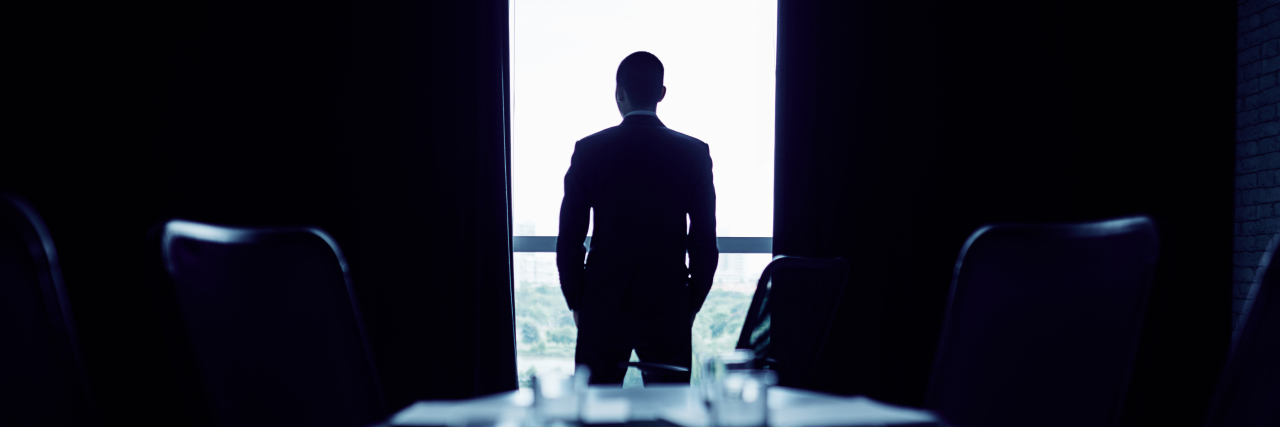My dad died when I was 17. As an introverted kid from an emotionally reserved family, I talked about it with everyone who’d hear me. Kidding. I didn’t. I told everyone I was fine. And when I didn’t cry, my friends told me how well I was handling it. In reality, it was tearing me apart.
In the ensuing years during college, I felt moody and sad but faked it. I quit baseball, something I took pleasure in playing before. I wrote that off as something I used to share with my dad that I no longer could share, but that wasn’t the truth. I was depressed.
Nobody noticed. When people asked, sympathetically, “How are you doing?” I answered, “Great.”
So everyone thought I was doing great, which made me believe I was doing great.
Nobody had suggested the benefits of talking to someone. Therapy, in my family, seemed to be a symbol of a person gone wrong. An all-too-common belief in our culture at large. But even if anyone had suggested it, I believed I was doing great. So why would I need to talk to someone?
Instead, I just needed to “man up.”
Therein lies the problem. That phrase and everything it stands for.
By bottling up my emotions, taking shame in the very idea of depression, and “being a rock” for my family — in other words, manning up — I was doing the right thing. What I should do. What was expected of me. An expectation developed either on cultural mores I internalized or some misguided notion of mine. Perhaps those were one and the same.
Either way, the right thing, in this case, was definitely wrong for me, personally. And not very helpful for my family, either. My mom and younger brother certainly didn’t feel better as a result of me scrambling to say the right thing while appearing moody and frustrated.
So, five years later, I decided to see a therapist who specialized in depression. I learned how to step outside myself and process my thoughts and feelings. I learned how to be in the moment. Not the past, not the future. The present. I learned how to manage situations that might have made me angry or sad before because I couldn’t navigate them or put words to how they made me feel. Now, I could.
But something cut my therapy short. I moved out of state and couldn’t work with my therapist any longer. Without any experience with other therapists, I didn’t want to work with anyone else. So, I didn’t. And guess what happened. You’ll never guess.
I went back to my old ways. And when I felt depressed again, I shrugged it off. I was just tired. My job was stressful. No, I didn’t want to go out to the bar with friends tonight. I had a long week and just wanted to lie down. Watch Netflix. Chill out.
I told none of my friends or family — only my wife — that I was depressed. Of course, my wife already knew. She suggested therapy. I said I was too busy.
None of my male friends talked about going to therapy. I didn’t want to be the only one. Somewhat evolved, we did talk about our feelings but wrapped those conversations up in deflective humor. Because of these discussions, we probably considered ourselves to be out of the man box. A sensitive writer-type, I know I did.
It took me months after initially talking out loud with my wife about my depression for me to schedule an appointment with a therapist. Having to call someone to schedule such an appointment — implicitly an admission of having a condition to be treated — felt intimidating. A couple of buttons online would’ve been much easier. I avoided it for a while but finally did it.
I’m still learning about what it means, about whether I have chronic depression or episodic depression, and I’m still getting comfortable talking about it. But I feel better with treatment and more comfortable with the diagnosis.
Now, I’m here, writing this.
I still haven’t told my close male friends about my depression. Or my mom and brother. So this is a start for me. Today, with this story, I’m sharing with the world that I have depression. Tomorrow, with those closest to me.
I’m sharing because I know I’m not alone. I know millions of other people have depression, and less than 50 percent of them worldwide receive treatment for it. Men are affected too, but they’re less likely to seek help. But help is what they need.
I hope this is a start for me to be more open, and for others like me to seek help, to talk about it.
Men, let’s talk about our feelings, cry, go to therapy and seek help when needed. Let’s man up.
Follow this journey on MANNNR.

